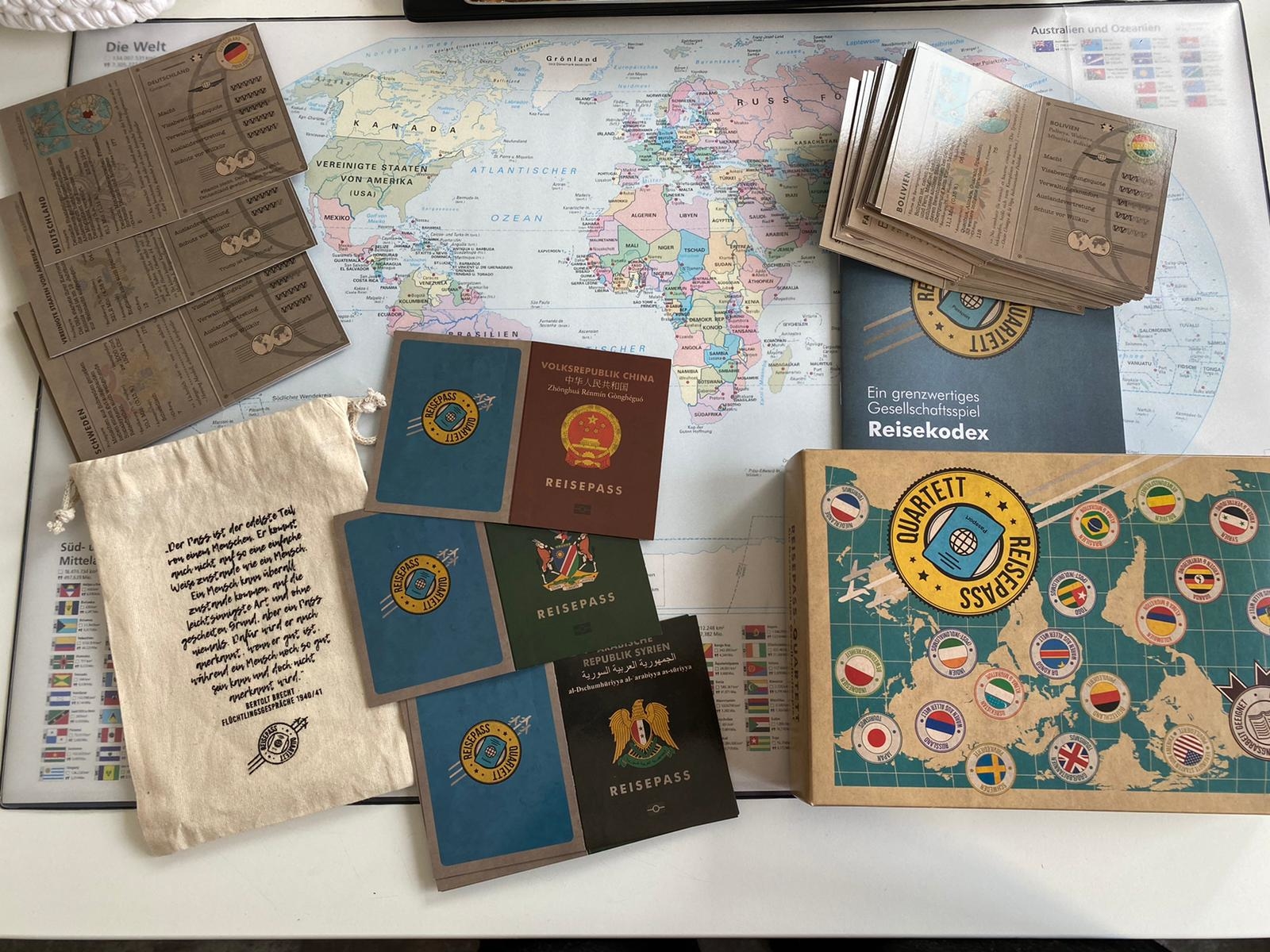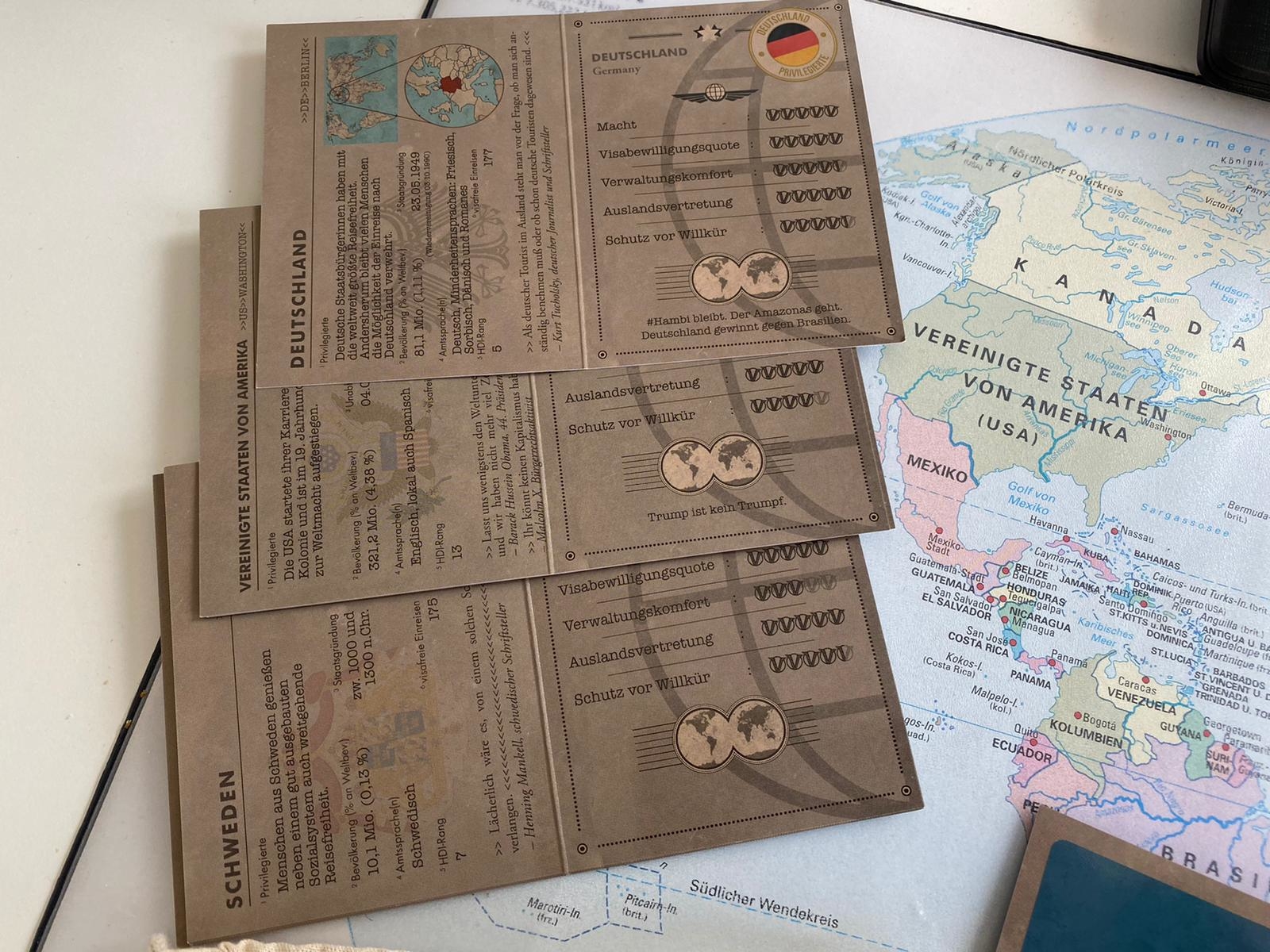by Jenny from Germany,
When I heard that the Ecumenical Department had bought a new game, I asked Carolin if we could try to play it together. I like to play, this game has even more depth. So we arranged to meet Jana, Carol and Christina at the volunteers house for an evening, ordered pizza and tested this game.
The game „Passport Quartet“ was published by „VisaWie“ campaign. In this game, each person starts with 4 passports. Afterwards there will be a duel. Which passport has more power? Which passport is best to get most visas? Which passport gets the most comfortable administrative act? Which country has the strongest diplomatic mission abroad? And which passports grants the best protection against arbitrariness? Additional action cards force the players to hand in their passports, to give extra explanations or to collect passports from other people. Trumpcards actually make loser passports win.
I already had an idea, that there are injustices and privileges with passports. Which passports are really the most powerful or the weakest, I could only guess. In my situation, however, I never really notice it. I’m very privileged here.
I’m very, very reluctant to lose in games. But when I did lose one of my cardboard cards, I could live with it. But when I realize that this game in our living room can be the day-to-day life of visa-applications, then I feel completely different.
The game presents the problem of the global imbalance of power. The visa issuance is super unfair. For people from countries in the Global South, visa applications for Europe are rejected more than average. The reason is often the lack of „willingness to return“. This means that issuing visas is a racist- and power-motivated way of excluding people who want to cross the border to Europe for professional or private reasons.
The game brought this complexity a little closer to me, and I can definitely recommend the game to others. In addition to the criteria required for the game, further information about the individual countries is given on the passports. The game instructions explain terms such as „administrative convenience“, „family reunification“ and much more.
Currently donations are collected to publish a second edition of this game. More information and news can be found at www.visawie.org. After we played the game, I sorted out a couple of the passports. Of the existing passports in the game, the German passport was the strongest. It was followed by other countries such as the USA, Sweden, France and the Netherlands. I think Syria was the one with the fewest points. When did I actually choose to be born in Germany?
Do you want to play the game? You may borrow it at the Department for Ecumenism in Dortmund; send an email to: oekumene@ekkdo.de




Hinterlasse einen Kommentar